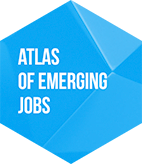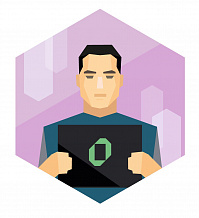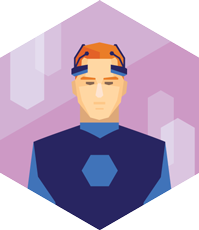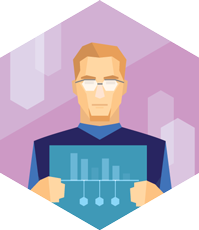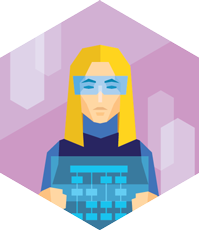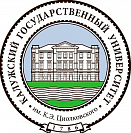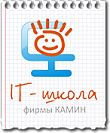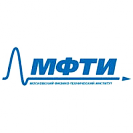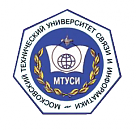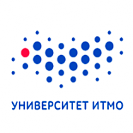IT sector
Information technology is one of the fastest-growing sectors of the economy. Changes occurring in the sector open up new and seemingly incredible opportunities in other areas such as design, transportation, staff and resource management, marketing, and education.
A number of significant processes are now happening in the IT sector. To begin with, telecommunication solutions provide links between various parts of the world. The volume of data transmitted over networks is increasing, leading to the improvement of data processing solutions. The industry is going to be revolutionized by Big Data, which will help solve the problems of early diagnosis, or create computer systems for simultaneous interpreting, taking into account all linguistic peculiarities.
Also, digital solutions are becoming increasingly mobile and user-friendly. With almost every family owning a laptop computer and every other person on the planet using a smartphone, in ten years’ time every urban citizen will have at least five or six interconnected wearable gadgets, e.g. augmented reality glasses, a fitness bracelet, and a smartphone with a smart wallet feature. Gadgets will take care of your athletic shape and daily regimen, help you organize your timetable, and suggest an optimal solution in various situations, e.g. where to have breakfast in a given part of town based on your dietary preferences, or what to do in the evening when you are in a particular mood.
Growing data volumes will call for new security systems, data filtering and protectiontools, not least because the proliferation of cloud-based systems increases the dangers of a data leak. Within the next 10 years, technologies will appear for precise identification of Internet users, with each and every click tracked. Technologies from science fiction and spy films will become a reality. The user of a device will be identified not only by his/her fingerprints or with a retina scan, but also through a DNA test. This will lead to deanonymization and total transparency, which, on one hand, will have a dramatic effect on Internet behaviour, and on the other, will cause protests and calls for anonymity.
Technologies will develop for checking data traffic integrity and information reliability, and verifying its sources. Demand will arise for insurance institutions providing protection against risks related to virtual environments, as well as for consulting agencies dealing with user security and image on the Internet. With many documents (even identification cards) gradually translated into electronic form, personal data may come under threat of total loss due to hacking attacks or system failures, which calls for new data protection solutions.
The increasingly powerful cyber-attacks against important facilities such as banks, telecommunications, media publishers, etc., are raising the question of their information security. In the distant future, programmes will become capable of cyber crime, on par with humans.
The boundaries between virtual reality and the physical world are becoming fuzzier, which means that the digital society will be organized in roughly the same way as in the real world, including state borders and government control. The “digital gap” between people (in terms of computer literacy) will create a new type of social stratification, leading to the emergence of special programmes for mass education in information and communication technology. Laws regulating the cyberspace will appear everywhere. “Electronic” governments will become fully operational and more interactive.
Moreover, virtual reality is turning into an intermediary between the user and the real world, with more and more remotely controlled smart devices and machines. This makes life easier, though it means that the virtual world can be used to attack physical objects. For example, criminals will be able to remotely block, damage or destroy a production line or transpiration network. The automation of processes is increasing the number of sensors connected to data networks to monitor system states. This, in turn, makes the infrastructure more vulnerable. For this reason, strong protection techniques need to be developed for smart networks and the Internet of things, along with alternative ways to manage them in a critical situation.
Innovations in other industries appear at a juncture with IT, spawning multiple potential cross-sector breakthrough points. However, the development and production of hardware, software and security systems still remain priorities in the sector.
Professions
Zerocoder
A specialist who creates ready-made IT solutions from prebuilt templates using a graphical user interface instead of classical programming. He works with databases, design, app integrations and automation of processes. One such professional can replace a team of IT specialists. Zerocoders are already creating mobile and web applications, automating processes and integrating with AI. That's why Innopolis University added zerocoding to the list of its master's programs. According to the US company Grand View Research, by 2027 the volume of the global market for zerocode development will reach 87 billion dollars.
Trends
Professional skills and abilities
Neural interface designer
Professional who designs interfaces compatible with the human nervous system, for controlling computers and household and industrial robots, taking into account the psychological and physiological traits of the user. Today, neural interfaces are used mostly for entertainment. For example, the Australian company Emotiv Epoc produces neural helmets for controlling characters in MMORPGs. In the future, however, neural interfaces will be used to control various sophisticated devices, or even to communicate nonverbally with other people (as in the DARPA Silent Talk system now in development).
Trends
Professional skills and abilities
Smart environment cyber technician
Specialist tasked with dealing with the lower levels of information infrastructure, ensuring the security of dedicated network segments at these levels (residential buildings and industrial facilities will presumably be separated from the Internet, to form their own secure segments connected to the common network via secure low-level connections).
Trends
Professional skills and abilities
Information security supervisor
Specialist in the information security of technological processes at automated industrial facilities. This supervisor ensures the security, protection and stable operation of process management systems and information processing, with a focus on tracking the emergence of new weak spots.
Trends
Professional skills and abilities
Personal profile security advisor
Advisor on the information security of Internet users.Compiles the current information image of a client based on all of the information about them available on the Internet.Audits the client’s activities on the Internet for weak spots, confidentiality and general security. At the client’s request, eliminates weak spots, edits (or deletes) the user’s information on the Internet, and shapes the information image of the client.
Trends
Professional skills and abilities
Cyber detective
Specialist investigating cyber crimes.Specialist in criminal science, investigation (modern detective), search (including active search through officially sanctioned cyber attacks against suspects) and processing of information on the Internet (data analyst with programing skills).Cyber detectives have, in fact, been around for some time now, and demand for them will only grow in the future.
Trends
Professional skills and abilities
IT auditor
Specialist in software development. Audits complex IT systems processing data and making decisions based on such data. Errors in, or breach of, such systems pose high risks.Provides audits of such systems for the security of their software, including the process of its development and qualifications of the developer.
Trends
Professional skills and abilities
Big Data model designer
Specialist in designing systems for collecting and processing large arrays of data received from the Internet, and developing analytical models and interfaces for assembling them. There are open vacancies in the specialty in Russia, though demand is not very high yet.
Trends
Professional skills and abilities
Digital linguist
Professional who develops linguistic systems for semantic translation (translation taking into account context and shades of meaning) and text information processing (including semantic search on the Internet). He/she also develops new communication interfaces between man and computer using natural languages.
Trends
Professional skills and abilities
IT preacher
Specialist in communications with end users of IT products and promotion of new solutions to groups having a conservative attitude towards advanced technology.The IT preacher will teach people to use new software and services to reduce the digital gap.Activities aimed at training people in “digital literacy” are offered today, usually on a voluntary basis, but this will become a real job in the near future.
Trends
Professional skills and abilities
Online lawyer
Specialist engaged in shaping regulatory interaction on the Internet (including virtual worlds) and devising legal protection systems for people and property on the Internet (including virtual property).
Trends
Professional skills and abilities
Interface designer
This professional develops user-friendly, adaptive and safe interfaces for equipment, devices and software of various levels.He/she is highly competent in usability (creating interfaces most comfortable for the user).The interface designer is an existing and popular job, with 2,015 vacancies published in July 2014, according to HeadHunter.However, the growing intensity of human-machine interaction will require greater numbers of such specialists, while their skills will need further development to be able to achieve new objectives.
Trends
Professional skills and abilities
Information systems architect
Qualified specialist for a wide spectrum of operations involving data processing systems.In particular, this specialist designs databases, develops action algorithms, ensures effective access of users to data storages, controls the quality and logic of information storage and extraction.Such specialists are already in demand (65 vacancies were published in the specialty in July 2014, according to HeadHunter), and even more of them will be needed in the future, when information technology has penetrated all areas of human activity.
